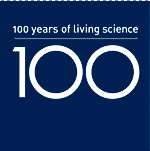Dr Joseph McCall
(Chemistry 1940, Geology 1949, PhD 1951)
shares his war time experiences of Imperial College sports
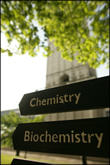 Dr Joseph McCall - I came to Imperial College in 1938 to read Chemistry and I got through the first year and then World War 2 broke out. I had volunteered because I was in the army OTC here but they said they wanted me to go back and continue studying because they didn’t want all the university students killed as had happened at the beginning of the First World War. So I continued and did the second year in Chemistry. I really felt Chemistry wasn’t right for me; I'm very much an outdoor sort of person and I did a subsidiary under Professor H H Reed at the time, and I thought this was absolutely marvellous, this was what I wanted to do.
Dr Joseph McCall - I came to Imperial College in 1938 to read Chemistry and I got through the first year and then World War 2 broke out. I had volunteered because I was in the army OTC here but they said they wanted me to go back and continue studying because they didn’t want all the university students killed as had happened at the beginning of the First World War. So I continued and did the second year in Chemistry. I really felt Chemistry wasn’t right for me; I'm very much an outdoor sort of person and I did a subsidiary under Professor H H Reed at the time, and I thought this was absolutely marvellous, this was what I wanted to do.
Anyway, in June 1940, Dunkirk happened and there was a rush to get all these university people in the Army and so I was called up and went to Aldershot and in the end I spent six years in the Army. I went to Madagascar in a commando landing force and then back to East Africa and up to Ethiopia and when the War ended, I thought what should I do?
I decided to come back, and I came and saw Professor Reed and said I wanted to do Geology and he said to me that he had actually been to Gallipoli in the First World War so he was very sympathetic to service people. He said there is room for you, but you have to be a good geologist and not a potboiler. I think this was a slight; he was getting at the chemists, thinking they were potboilers!
Anyway, I did three years and graduated quite well so Professor Reed asked me to do a PhD with him. I did a PhD with him on the geology of Donegal in the Irish Republic. There was a big team working on the rocks of Donegal from Imperial College at the time, and in 1951, I got my PhD and I joined the Colonial Surveys in Kenya.
I worked for ten years in Kenya and then I got married while I was in my last few years in Kenya and I had a small daughter. I really wanted to get somewhere where it was much better to bring the family up and I got offered a job as a senior lecturer at the University of Western Australia in Perth. I worked in Perth for ten years.
Then I went and worked in Iran on an enormous mapping project under the Shah’s regime and I was working there – we worked there for two years – and then they had a revolution and we had to come out, but the new government wanted the work continued so I stayed in England writing it all up for them.
Then I went to Canada and worked on a gold mine and finally, after three years in Canada, I came back here and my last work before I retired was mainly to do with reports on North Sea oil. Then I got into environmental geology, which is very much the subject of the lecture this morning. I did about 17 years actually in environmental geology. I'm retired now, but I still work for the Geological Society. I write books actually also, but I work for the Geological Society. I am an Editor of the Geo Scientist, which is the in-house magazine of the Geological Society and I've been doing that for 15 years. I've tried to get off it, but the Editor in Chief won't let me.
Interviewer: Have you spoken to any of your previous colleagues and friends from University when you were here? Are any of them here today?
JM Of my year, there is only one living, actually. And he is a great friend of mine, but he is in Australia. We had a small year that year, it was about seven students and all the rest have gone. The younger ones have gone. I was one of the oldest.
Interviewer: What was the best thing in the years that you spent here at Imperial?
JM 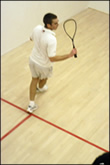 I had a very good time here because I did a lot of sport. I played hockey and squash for the College and before the War, it was all a bit restricted, but after the War I really got much more involved in the social life in the Union and that. I was Vice President of the Royal College of Science Union at one time and I was on the committee of the Imperial College Union, so I was very active in Union affairs. I enjoyed it very much. My only feeling now is that it's very huge. It was a much tighter-knit small community, although I suppose there were about 3,000 students after the War here. 13,000 are here now and that’s an enormous change.
I had a very good time here because I did a lot of sport. I played hockey and squash for the College and before the War, it was all a bit restricted, but after the War I really got much more involved in the social life in the Union and that. I was Vice President of the Royal College of Science Union at one time and I was on the committee of the Imperial College Union, so I was very active in Union affairs. I enjoyed it very much. My only feeling now is that it's very huge. It was a much tighter-knit small community, although I suppose there were about 3,000 students after the War here. 13,000 are here now and that’s an enormous change.
Filming by Barbara Axt Portella.
© 2007 Imperial College London
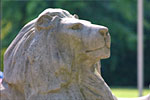
Through the first decade of the twenty-first century the campaign seeks to philanthropically raise £207 million from Imperial’s alumni, staff and friends, and donations from charitable foundations and industry.
Where your support can make a differenceGive now
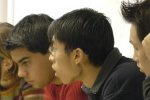
Imperial’s Centenary Year provides an opportunity to recognise and celebrate members of the Imperial community.
View staff and student portraits
